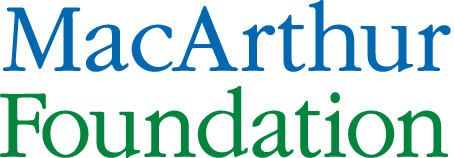About
About the Institute of Politics
The Institute of Politics at the University of Chicago was founded and is led by former White House Senior Advisor and Obama campaign strategist David Axelrod (AB ’76). The non-partisan Institute of Politics (IOP) formally launched in January 2013 to strengthen American politics and cultivate a new generation of political and public service leaders. The IOP seeks to do this through three principal means: 1) Public lectures and panel discussions; 2) A program for visiting fellows; and 3) Student internships and civic engagement opportunities.
Since its inception the IOP has been focused on healing the divisions in American politics, not only by preparing students for responsible and effective leadership in the long term, but also by providing a space through which high-level practitioners can share their insights and discover new ideas. In so doing, the IOP has become a vital intersection for elevating political discourse, sparking political engagement and cultivating future political leaders
About the Nieman Foundation for Journalism
The Nieman Foundation houses a dynamic set of initiatives to promote and elevate the standards of journalism and educate and support those poised to make important contributions to its future. We do this through our fellowship programs; our publications, online and in -print; and programming that convenes some of the leading thinkers of our time.
Nieman began as a fellowship for select journalists to spend an academic year at Harvard in pursuit of individual study plans to strengthen their knowledge and leadership skills. That program recently celebrated its 75th anniversary; more than 1,400 journalists from nearly 100 countries have been awarded Nieman fellowships since 1938. Recently we added a short-term visiting fellowship for individuals with a specific project to enhance journalism who would like to spend up to 12 weeks at Harvard advancing their idea. Visiting fellows have included digital innovators, technologists, academics, and journalists from the U.S. and abroad.
About the John D. and Catherine T. MacArthur Foundation
 The John D. and Catherine T. MacArthur Foundation supports creative people and effective institutions committed to building a more just, verdant, and peaceful world. In addition to selecting the MacArthur Fellows, the Foundation works to defend human rights, advance global conservation and security, make cities better places, and understand how technology is affecting children and society. MacArthur is one of the nation’s largest independent foundations. Through the support it provides, the Foundation fosters the development of knowledge, nurtures individual creativity, strengthens institutions, helps improve public policy, and provides information to the public, primarily through support for public interest media. Since 2012, MacArthur has conducted a time-limited exploration of ways to strengthen democracy in the U.S. by supporting organizations working to strengthen voting rights, improve the efficiency and effectiveness of the voting system, and reduce the impact of money in political campaigns. More information is available at www.macfound.org.
The John D. and Catherine T. MacArthur Foundation supports creative people and effective institutions committed to building a more just, verdant, and peaceful world. In addition to selecting the MacArthur Fellows, the Foundation works to defend human rights, advance global conservation and security, make cities better places, and understand how technology is affecting children and society. MacArthur is one of the nation’s largest independent foundations. Through the support it provides, the Foundation fosters the development of knowledge, nurtures individual creativity, strengthens institutions, helps improve public policy, and provides information to the public, primarily through support for public interest media. Since 2012, MacArthur has conducted a time-limited exploration of ways to strengthen democracy in the U.S. by supporting organizations working to strengthen voting rights, improve the efficiency and effectiveness of the voting system, and reduce the impact of money in political campaigns. More information is available at www.macfound.org.
About the Robert R. McCormick Foundation
The Robert R. McCormick Foundation is committed to fostering communities of educated, informed and engaged citizens. Through philanthropic programs, Cantigny Park and museums, the Foundation helps develop citizen leaders and works to make life better in our communities. The Foundation was established as a charitable trust in 1955, upon the death of Colonel Robert R. McCormick, the longtime editor and publisher of the Chicago Tribune. The Robert R. McCormick Foundation is one of the nation’s largest foundations, with more than $1 billion in assets. More information is available at www.mccormickfoundation.org.
